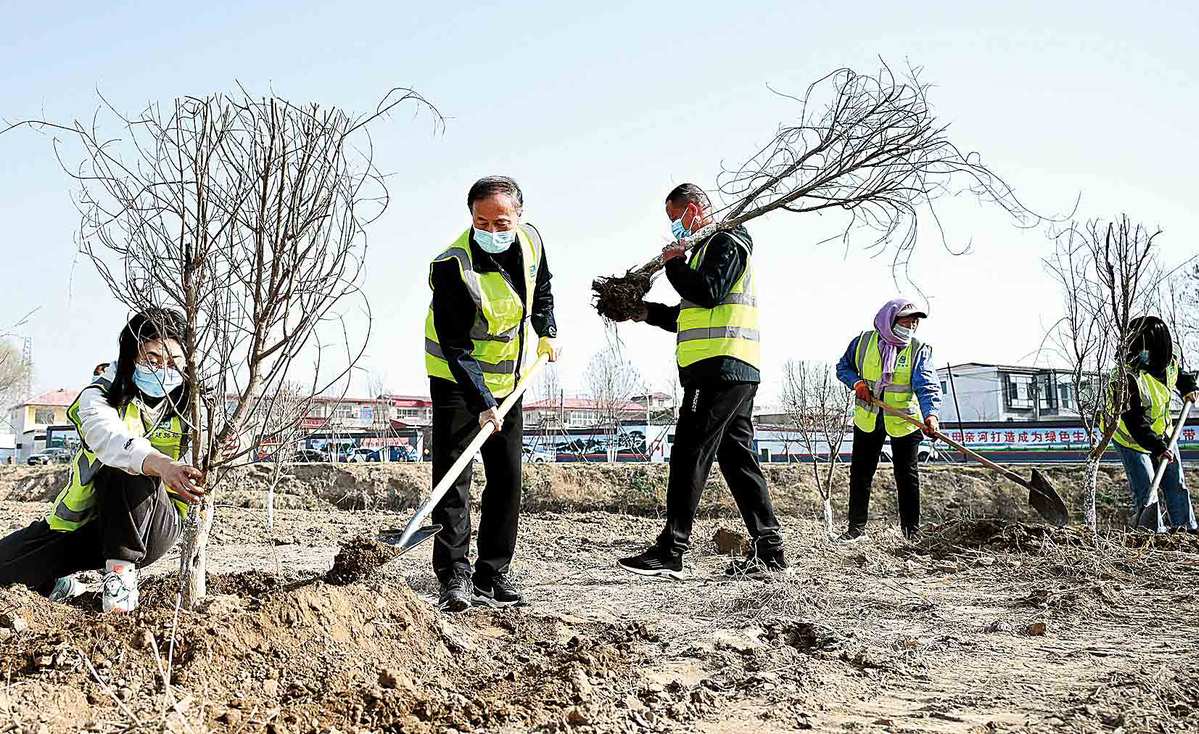Committee urges more voluntary tree planting


China planted 3.6 million hectares of forest last year, more than double the area of Beijing, according to a National Land Greening Communique released recently by the National Afforestation Committee.
Greening projects also prevented the expansion of more than 1.4 million hectares of sandy and desert land and restored more than 3 million hectares of grassland, it said.
Saturday marked China's 44th Tree Planting Day, and the committee called on all adults to plant three to five trees a year and encouraged public participation in various greening projects, from donations to tree adoption.
"Protection of the environment today will serve to provide a better future for our country and nation," the committee said in a statement. "We should keep following the path of green development to promote a harmonious relationship between humans and nature."
Voluntary tree planting in China over the past four decades has attracted participation by members of the public and has seen nearly 79 billion trees planted. That has increased China's forest coverage rate to 23 percent, almost double that of the 1980s, according to the National Forestry and Grassland Administration.
The State Council released a guideline on scientific greening last year. Since then, 29 provincial-level regions have released regional greening guidelines that assigned greening duties to town-level administrations.
Apart from large-scale greening projects, forestry departments have focused on small projects in urban areas to improve residents' living conditions.
The communique said China has established more than 20,000"pocket parks"-mini parks in urban areas-and built more than 80,000 kilometers of green pathways nationwide.
Ranking fourth in wetland area in the world with 65.9 million hectares, 10 percent of the global total, China plays a crucial role in wetland conservation.
Wetlands are rich reservoirs of biodiversity vital for humanity and nature to thrive. Forty percent of the world's plant and animal species depend on wetlands and they are also among the Earth's top carbon stores.
China's wetlands have expanded steadily over the past five years, growing by 202,600 hectares and making significant contributions to water safety and environmental protection.
The country passed its first specialized law on wetlands protection in December, which took effect at the start of this year.
In the next five years, China will plant more local species instead of introducing imported plant species, according to the greening guideline released by the State Council in June.
It also suggested that arid areas make afforestation plans that waste little water.
- China records 26 percent drop in criminal cases
- Former vice-president of Beihang University sentenced to 12 years for bribery
- First China (Jilin) Real Image Conference promotes development of documentary industry
- Fishing manuals record China's early footprints in South China Sea
- Local & outsider doctors unite to aid Xizang quake victims
- Alumni couple lends a helping hand to needy students




































